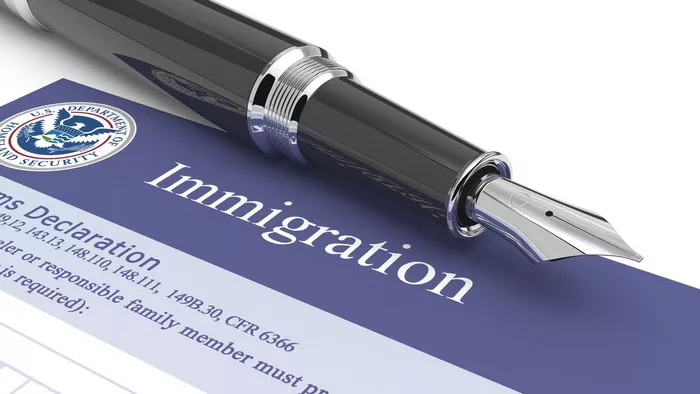Immigration is often portrayed as a straightforward process: individuals apply, get approved, and move to their new destination. However, the reality is far more complex, with numerous factors contributing to prolonged wait times. From bureaucratic red tape to geopolitical tensions, the journey toward immigration can be fraught with obstacles. Understanding the intricacies behind these delays is crucial for individuals navigating the immigration system and policymakers seeking to reform it.
Legal Frameworks and Regulatory Hurdles
At the heart of immigration delays lie legal frameworks and regulatory hurdles that govern the movement of people across borders. Each country has its own set of immigration laws, policies, and procedures designed to manage the influx of migrants while addressing national security concerns and economic priorities.
One significant factor contributing to prolonged immigration wait times is the sheer volume of applications received by immigration authorities. In countries like the United States, Canada, and Australia, which are popular destinations for immigrants, the number of applicants often exceeds the capacity of immigration agencies to process them efficiently. As a result, backlogs form, leading to extended wait times for applicants.
Moreover, the complexity of immigration laws and regulations can further exacerbate delays. Navigating the intricacies of visa categories, eligibility criteria, and documentation requirements can be daunting, particularly for individuals without legal expertise or resources. Minor errors or omissions in applications can result in lengthy delays or even denials, forcing applicants to restart the process from scratch.
Resource Constraints and Administrative Backlogs
Resource constraints within immigration agencies also contribute significantly to prolonged wait times. Insufficient funding, staffing shortages, and outdated technology infrastructure can hamper the efficiency of immigration processing systems. Without adequate resources, immigration agencies struggle to keep up with the influx of applications, leading to administrative backlogs and delays.
In addition to resource constraints, political factors can further complicate immigration processing. Shifting policy priorities, changes in government leadership, and geopolitical tensions can disrupt immigration procedures and contribute to uncertainty for applicants. For example, changes in visa quotas or diplomatic disputes between countries can impact the processing timelines for certain immigrant categories.
Security Screening and Background Checks
Security screening and background checks are essential components of the immigration process, designed to safeguard national security and prevent individuals with criminal records or ties to terrorist organizations from entering a country. While these measures are necessary, they can also contribute to prolonged wait times for immigrants.
Comprehensive security screening involves vetting applicants against various databases and intelligence sources to assess their potential risk to the receiving country. This process can be time-consuming, particularly for individuals from regions known for political instability or terrorism. Delays may occur if additional information or clearance is required for certain applicants, further prolonging the immigration process.
Complexity of Family-based and Employment-based Immigration
Family-based and employment-based immigration categories account for a significant portion of immigration applications worldwide. However, the complexity of these pathways can result in prolonged wait times for applicants and their families.
In family-based immigration systems, individuals may sponsor relatives for immigration to reunite with loved ones in their new country. However, strict eligibility criteria, long processing times, and limited visa quotas can create substantial delays for families separated by borders. Additionally, changes in familial relationships, such as divorce or death, can complicate the immigration process further.
Similarly, employment-based immigration pathways often require individuals to secure job offers from sponsoring employers in the destination country. However, labor market demand, regulatory requirements, and bureaucratic processes can impede the timely issuance of work visas. Industries with specialized skill requirements, such as technology or healthcare, may face particular challenges in recruiting and retaining foreign talent due to prolonged immigration wait times.
Inconsistent Immigration Policies and Regulatory Overhaul
Inconsistent immigration policies and regulatory overhauls can introduce uncertainty into the immigration process, leading to prolonged wait times and disruptions for applicants. Changes in government administrations or shifts in political priorities can result in policy reversals, causing confusion and delays for individuals navigating the immigration system.
Moreover, frequent changes to immigration laws and regulations require immigration agencies to adapt their processes and procedures accordingly. This adjustment period can lead to temporary slowdowns in application processing as agencies work to implement new policies and guidelines. Additionally, retroactive changes to immigration policies may affect applicants who have already begun the immigration process, further complicating their journey.
Conclusion
Immigration is a complex and multifaceted process influenced by legal frameworks, administrative procedures, security considerations, and geopolitical dynamics. Prolonged immigration wait times can be attributed to a combination of factors, including bureaucratic red tape, resource constraints, security screening requirements, and regulatory uncertainty.
Addressing the root causes of prolonged immigration wait times requires a comprehensive approach that balances national security interests with the need for efficient and humane immigration systems. This may involve investing in modernizing immigration infrastructure, streamlining application procedures, enhancing interagency coordination, and implementing fair and transparent immigration policies.
By understanding the complexities behind immigration delays, policymakers can work toward creating more efficient and equitable immigration systems that benefit both immigrants and receiving countries alike. Additionally, providing adequate support and resources for immigrants navigating the immigration process is essential for fostering integration and ensuring the successful resettlement of newcomers in their new communities.


